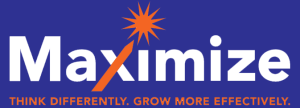At this point it’s fair to concede that the idea of a lifetime job is a relic from a previous era. It is widely believed that we are slated to have an average of seven careers in our lifetime–many of which will involve more than one job. Even when we’re in long-term committed employment relationships, we are still not married to the company. Ultimately, we’re free agents and need to manage our own career paths, proactively make job changes and build our own skill sets.
At the same time, when we are employed by a company, we must be, to some extent, representatives of that company. We are expected to conduct ourselves in ways that are not only ethical, but also appropriate and socially-acceptable. Bad behaviors reflect poorly upon our employer. This is even more the case for corporate executives. I’d argue that the further you get up the chain of command, the more your public face melds with that of your corporation.
So how does this play out in the transparent world of social media where we have a single persona? Because the personal is the public, it is also the professional.
One result may be that people become reticent to BE the face of the organizations for which they work. People may choose to keep silent and not share their opinions and thoughts in public forums. Noses to the grind and locked behind closed doors, these employees will hinder the information sharing that leads to innovation and will hinder the development of the collaborative culture that is percolating.
Another possibility may be that people will opt out of some or all of the social media conversation to protect their employers and themselves. My husband, a Hill staffer, has very consiously chosen not to have a Facebook page because he cannot control his contacts’ activities and posts. An embarrassing comment on his Wall would reflect poorly upon him and thus, upon his employer. As a government employee, his standards are, necessarily, high.
A third outcome is that we may see more and more independent consultants and freelancers who represent their own brands. Being an independent consultant may be the safest position to be in, and yet the hardest, all at the same time because we can be associated with conflicting client perspectives at the same time. Over the past two weeks I’ve come across two occasions on which I felt the need to put a disclaimer in my communications: “the views in this post represent my opinions and are not necessarily the perspectives of my clients.”
With our world in the midst of major shift to a more open, honest and transparent culture, shying away from full participation is neither a positive, nor a sustainable, solution. We need to find ways to be our personal and professional selves within social media. We can’t afford to lose valuable people or their perspectives.
Medication errors can happen anywhere, but you can protect yourself. There are many of legal online drugstores that will offer legitimate discounts. Certainly it isn’t all. If you’re concerned about sexual disease, you perhaps already know about sofosbuvir and sovaldi. What professionals talk about sofosbuvir hep c? (Read more sovaldi). The signs of sexual problems in men include inability to maintain an erection sufficient for sexual functioning. Happily many problems with sexual health can be treated. Before purchasing Kamagra or any other generic, discribe your doctor your heartiness state. Health care producer may order certain tests to rule out any other problems that may be contributing to the malfunction. Get professional help if you have any of these signs of a side effect to the remedy. If the preparation you are capture is not approved, your physician can prescribe another prescription medicine.

I know what you mean. It’s interesting. Playing it super-safe can be limiting. Diverse views and experiences strengthen organizations; however, I know some people don’t respect differing ideas. Interesting topic of discussion.
This article about the Iowa college president boozing on the boat…is an example of “personal transparency” gone awry.
http://www.desmoinesregister.com/apps/pbcs.dll/article?AID=/20080828/NEWS/80828006
Thanks for your comments, majorman. The Iowa example is a good one. This is an issue that will become more central as more people hop on the social media bandwagon.